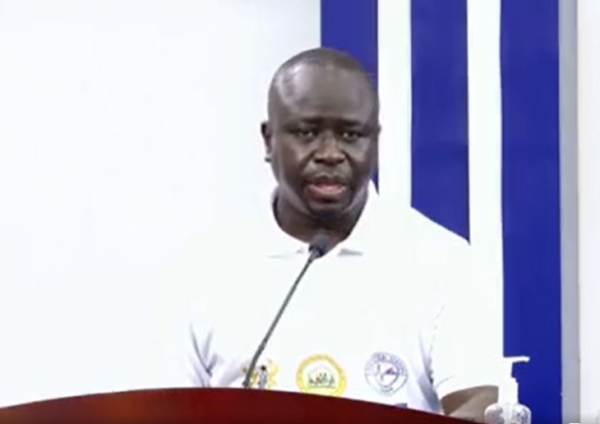More than 90% of businesses that shutdown as a result of the negative impact of the Covid-19 pandemic have resumed full scale operations.
This constitutes more than 20,000 businesses, out of the over 30,000 that were closed down during the pandemic.
According to the 3rd Business Tracker Survey by the Ghana Statistical Service, majority of these businesses were in the Food, Hotel and Manufacturing sectors.
The Wave III Business Tracker also showed rising use of mobile money among firms for sales.
Data compared to Waves I and II, revealed almost seven out of 10 firms are now using mobile money to do business, with mobile money usage increasing from 35.7% and 53.4% (Waves I and II respectively), to 69.6% (Wave III). Similarly, more businesses are adopting the use of internet for sales.
The report also indicated that sales have shot up for most businesses by more than 11%. This positive effect was evident among small businesses as their sales increased by 22%.
It was a result of government’s intervention through the stimulus package to the Small and Medium Enterprises.
Again redundancy at the work place that was reported in the first and second wave of the survey has reduced significantly in the third wave.
However, the key findings from the third round (Wave III) data released by the GSS, in partnership with the United Nations Development Programme (UNDP) and the World Bank, show a considerable decline in the rate of reduction in hours worked, wage reduction and leave without pay over the three data collection periods in2020-2021 (Waves I-III).
“We need to reimagine development in the digital age. It is encouraging to see more firms embracing digitalization as a default to improve business. UNDP remains committed to supporting Government’s digital agenda and recovery efforts to accelerate the attainment of the Sustainable Development Goals (SDGs)”, stated Angela Lusigi, UNDP Resident Representative in Ghana.
The top three policies supporting the firms desire to become resilient were loans with subsidized interest, cash transfer and access to new credit.
“The improvement recorded over the periods is remarkable, but we also need to pay attention to the policy supports required by the firms. The World Bank will continue to support the Government of Ghana in its efforts towards the country’s economic recovery,” noted Pierre Laporte, World Bank Country Director for Ghana, Liberia and Sierra Leone.
TheCOVID-19 Business Tracker is a collaboration between the Statistical Service, UNDP and the World Bank which aims at providing critical information to help the Government of Ghana, development partners
The overall objective of the survey is to track the socio economic impacts, measures to mitigate this impact, and efforts to build better recovery for the people of Ghana.
Latest Stories
-
Let’s embrace shared vision and propel National Banking College – First Deputy Governor
5 mins -
Liverpool agree compensation deal with Feyenoord for Slot
11 mins -
Ejisu by-election: There’s no evidence of NPP engaging in vote-buying – Ahiagbah
17 mins -
Ejisu by-election: Independent ex-NPP MP’s campaign team warns party against dubious tactics
40 mins -
ZEN Petroleum supports Tse-Addo Future Leaders School
1 hour -
NPP must win back Adentan seat in 2024 polls – Obeng Fosu
2 hours -
PPA Clarification: The dark side of the World Bank’s ‘giveaways’ in Ghana by Bright Simons
3 hours -
Blinken says China helping fuel Russian threat to Ukraine
3 hours -
MHA declares May as Purple Month for Mental Health Awareness
4 hours -
WAEC arrests former headmaster over illegal students registration
4 hours -
MeToo founder Tarana Burke defiant after Harvey Weinstein ruling
4 hours -
Be alert, insist on decent messages – Dwumfour tells media
4 hours -
Father jailed 10 years for burning daughter’s genitals with hot cutlasses
5 hours -
I aim to help Ghana produce world-class athletes – Asamoah Gyan
5 hours -
Ashanti Regional Minister alleges sabotage in electricity supply
5 hours

